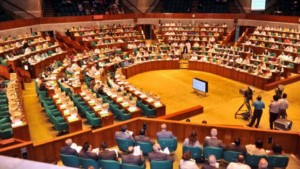by Karin Pettersson
Karin Pettersson says we can have Big Tech’s market domination, business models and democracy—just not all at the same time.
Last week Facebook’s Mark Zuckerberg took to the stage in San Jose, California, and presented his vision for the future at the company’s yearly developers’ conference.
The attention given to the conference by the world’s media was
New normal
Since the 2016 ‘Brexit’ referendum and the election of Donald Trump as US president, the following year, discussion about the negative impact of social networks on democracy has intensified. ‘Fake news’, disinformation, Russian interference and propaganda have become the new normal. In a recent TED-talk, the Guardian journalist Carole Cadwalladr described how Facebook became a platform for lies and illegal
‘Have social media made the world a better place?’ Poppy Harlow of CNN asked the influential tech writer Kara Swisher ‘No, not now’ was the dry answer. The founder of the modern web, Tim Berners-Lee, has called for regulation of the internet as the only way to save it, and the virtual-reality pioneer and internet philosopher Jaron Lanier has written a book about why people should get off ‘social media’ as soon as possible.
The current situation is clearly unsustainable and the measures taken so far to address
The economist Dani Rodrik has framed the discussion around the state of the world economy as a trilemma, where
It might be conceptually useful to structure the discussion of the global information space in an analogous manner. One can have democracy, market dominance and business models that
Democracy
For democracies to work, access to information and pluralism of news and information are essential. Why? As Reporters without Borders put it in its Declaration on Information and Democracy last autumn, ‘Knowledge is necessary for human beings to develop their biological, psychological, social, political and economic capacities.’
Today, the information infrastructure achieves the opposite of informing us and providing knowledge. In today’s world, lies
The danger to democracy comes as a consequence of two different but overlapping logics. One is the business model of social networks. The other is the dominant position they occupy in our information space. One isn’t enough to harm democracy but, in combination, the mechanisms become lethal.
Business models
In a classic essay, Ethan Zuckerman of MIT called the tech giants’ choice of advertising as their business model ‘the internet’s original sin’. When Facebook and Google made that choice, the foundation was laid for a lot of the problems we see today.
Advertising feeds on data. To sell more targeted ads back to customers means keeping them engaged and harvesting the maximum amount of data from them. This
Zuckerman’s essay was written five years ago. Since then, things have escalated, not only in
Lisa-Maria Neudert, a researcher at the Oxford Internet Institute, has summarised the problems of the digital-attention economy thus: ‘The content that is the most misleading or conspiratorial, that’s what’s generating the most discussion and the most engagement, and that’s what the algorithm is designed to respond to.’
We live in a public sphere which
Market domination
The ad-based business model wouldn’t be so dangerous if we lived in a world with a plurality of products competing in the information space. But today we see a two-fold movement in the opposite direction.
The first is
Facebook today has over 2.3 billion monthly users and YouTube last year had 1.8 billion logged on. The majority of Americans get their news from social media and the same is true of most European countries.
Never in the history of humankind have companies existed with such reach and impact on information and human communication. The size of the audience amplifies the problems of the business models to a level where it becomes dangerous. If only smaller actors in the communication space
The trilemma, then, is that one can have democracy and ad-based business models, but not combined with market domination. And one could, in theory, have democracy and dominating platforms, if they functioned in a way that did not
Solving the trilemma
In the end, just as with Rodrik’s model, we are stuck with a choice. If we want to keep democracy, we need to guarantee pluralism in the information space, by creating competition in the market through breaking up the duopoly or establishing safeguards against a business model incompatible with democracy.
How do we do that? I’m not sure but I firmly disagree with the notion that it would be ‘too complicated’. The Reporters without Borders declaration suggests that platforms ‘shall promote diversity of ideas and information, media pluralism and
If implemented, such principles might fundamentally alter the business models of the social-network giants and help solve the trilemma. The other road is, of course, that which the Democrat presidential candidate Elizabeth Warren has suggested in the US—break the companies up.
The important
This article is a joint publication by Social Europe and IPS-Journal
(Karin Pettersson is




